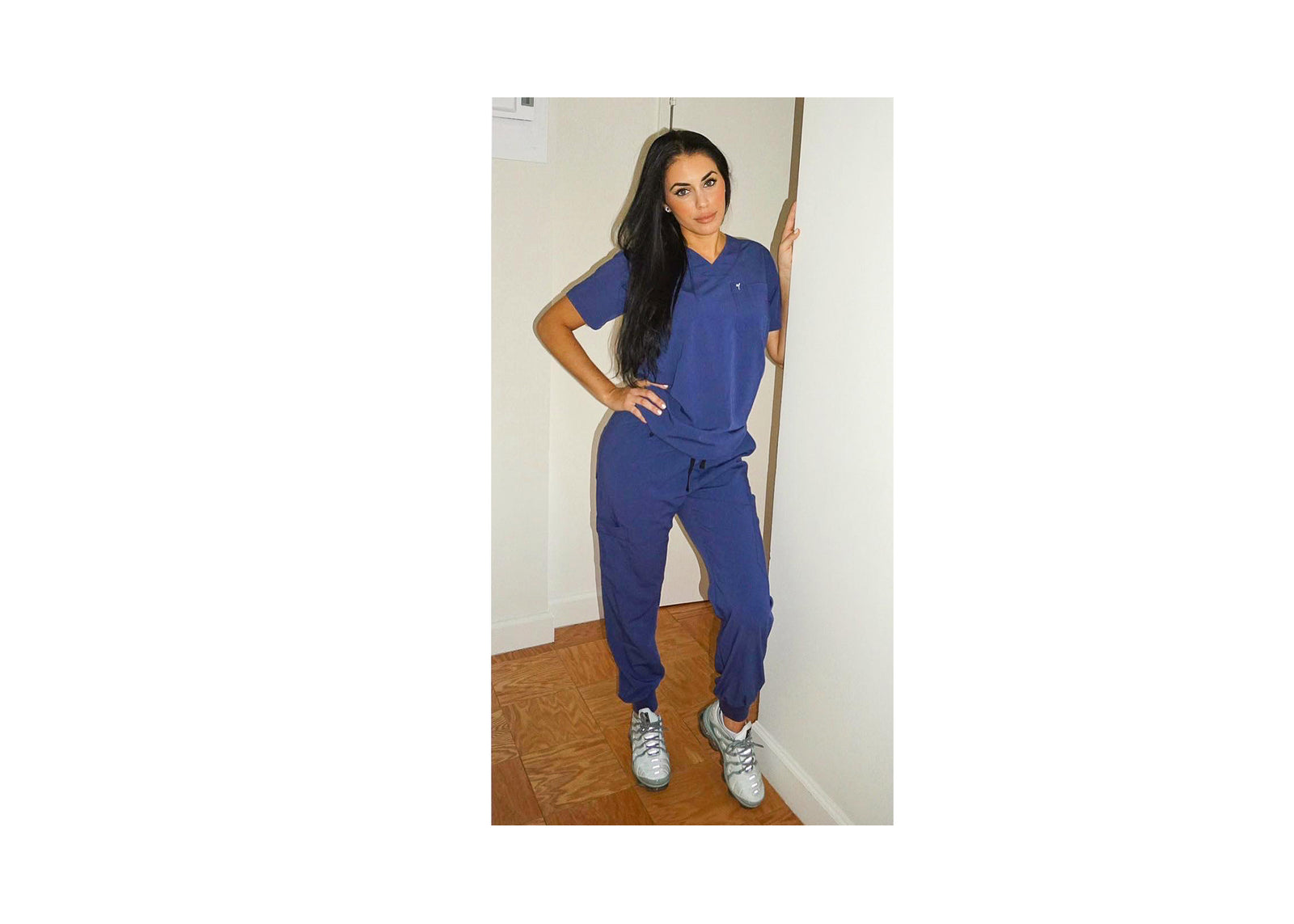How to Land your first job as a RN and how to tackle your first job interview

By Millennial In Medicine: Gabriela R. @thenursegab
thenursegab.com
Landing your first job as a registered nurse can be quite stressful. So I’m dedicating this blog post on tips how to tackle your first job interview and successfully land your first nursing job!
RESEARCH
Depending on your area of interest, begin looking into and researching job opportunities in your city, or whichever city you desire to work in. If you are looking to work in an ICU or a more specialized area of nursing, you will most likely be required to apply to a fellowship program. Start researching which hospitals offer fellowship programs, when they begin, and how to apply.
I began looking into fellowship programs and jobs months before I graduated nursing school, and then applied after graduation. I went on my first job interview and received my first job offer before even taking the NCLEX. I was offered the position, pending my exam results. This definitely varies among places, but it is important to know while researching that some places will offer you a position pending your NCLEX results, while others would rather you apply after you take & pass the exam.
I knew I wanted to work in New York City and on an ICU floor, so I researched which hospitals had ICU fellowships.
I made a list for each hospital including:
- Fellowship programs
- Start dates
- Their requirements
- When to apply
I called these hospitals as well to gather more information on other questions I had. Being proactive is going to get you where you want to be!
PREPARATION
Preparing for my first job interview required time and dedication.
I did a lot of research on nursing job interviews, the types of questions frequently asked, and I even watched YouTube videos of mock-interviews.
I spoke with people that I knew who were already interviewed or who work at that specific hospital, the types of questions that were asked. I gathered all of the interview questions that could be asked, typed them up on a word document, and provided my response to each one. I read them until I felt I could comfortably answer these questions or similar questions with confidence during an actual interview.
If interviewing for a specific floor, make sure you are able to explain why you think it best suits you and what you like about that specific unit.
THE JOB INTERVIEW
During the interview, it is important to talk about your work experiences when answering questions. Make sure you have some sort of experience in patient care that you can discuss and how it helped you. If you do not have any experience yet, try and work somewhere that exposes you to the medical field on your summer breaks, or part time while in nursing school. Having experience in patient care, even as a volunteer position, is vital for interviews and your overall background of nursing.
During nursing school, some people in my classes even worked part time as CNAs to help build their medical background. The more experience you have, the better it looks on your resume and being able to show why you are fit for the job.
Shadowing nurses on certain units is also a great way to learn about the different areas of nursing that you may have not been exposed to before. I shadowed nurses/nurse practitioners on a Cardiac ICU floor, which helped me make my decision as to where I wanted to work, but also helped me during my interview.
While jobs in the medical field will help you stand out as a candidate, other jobs outside of medicine such as waitressing, can help you answer questions during an interview. Jobs that show you have interpersonal skills & experience in customer service are positive to talk about and can help demonstrate why you would be a great nurse.
NURSING INTERVIEW QUESTIONS
Note: Not all possible questions are listed, but this is a good start.
Answers are not provided, just a few tips, since we are all different with diverse experiences.
A few questions nursing interviewers love to ask:
- Why did you choose nursing?
Besides the desire to help others, try and come up with something else that made you passionate about it in the first place to make you stand out. Maybe a personal experience, a sick family member you took care of, a job you worked, etc.
- What are your strengths & weaknesses?
- What was a difficult conflict/decision you have had and how did you handle it? (Or a time you had a difficult patient & how you handled it)
- What was your easiest/hardest/ or favorite clinical and why?
- What would your past clinical preceptors say about you?
- If there were conflicts that arise between you and your fellow coworker, how would you handle it?
- Why do you want to work for us? WHY _____(insert hospital name)?
For this type of question, you need to do research on the hospital, the reputation of the hospital, any credential status, awards, etc.
Also be sure to read their mission statement, and be able to explain why you fit that mold & criteria.
- Where do you see yourself in 5 years career wise?
- ICU fellowship–>Why the ICU?
- What was your most critical/ill patient?
- Why should we pick YOU for this internship/fellowship, selecting from a very competitive group of candidates?
Once again, write down or type every possible interview question they could ask you and have an answer for all of them. Review your responses, and brainstorm. Being prepared is so important. Interviews require studying and lots of preparation. If you’re somebody like me with anxiety, it’s very important to feel reassured that you are going into the interview well prepared and confident.
STANDARD INTERVIEW TIPS
You have probably already heard all of these tips, but it doesn’t hurt to review them again.
- Showing up early is a MUST. The last thing you want to do is show up late to a job interview. That already sets a bad tone and shows you are not responsible.
- Have a good nights rest the night before. This helps you to be sharp and not feel/look tired.
- Eat a healthy meal or snack before. I don’t know about you, but I can’t focus or think as well while hungry. #Hangry
- Bring a folder with extra copies of your resume & transcript to be able to hand them out to each person interviewing you.
- Dress professional. I wore a business professional black “suit” with a plain white top under and black flats. I bought my entire outfit from Zara, which I highly recommend if you’re shopping for women’s suits and business casual clothing.
- Don’t be EXTRA–>Keep it simple! No crazy colors, not a lot of jewelry, not too much makeup, no crazy hairstyles, no long nails, no revealing clothes (low cut tops, tight pants), don’t wear super high heels (is this a job interview or a club?)
- Look well put together, classy and clean!
- EYE CONTACT: I cannot stress this enough! Make sure while being asked questions and answering them you are making eye contact with however many people are interviewing you (I only had 2, some people have 3-4 interviewers)
- Take your time when answering questions, but also don’t take forever. Know what you want to say. Speak clearly and thoroughly.
- Try not to interrupt the interviewer.
- Have confidence, smile, everything you probably already heard before.
You really want to show them you know your stuff, have good experience, and know how to handle situations. You also want to convey your good personality because at the end of the day they have to work with you on the unit and they don’t want to deal with someone who is rude or not friendly.
When I was preparing for job interviews, I wish I had a blog post such as this one to read in order to help me succeed. This is why I made this post, in order to help other nurses be the best they can be! If you follow the steps above & more, you will definitely kill your interview!






Leave a comment